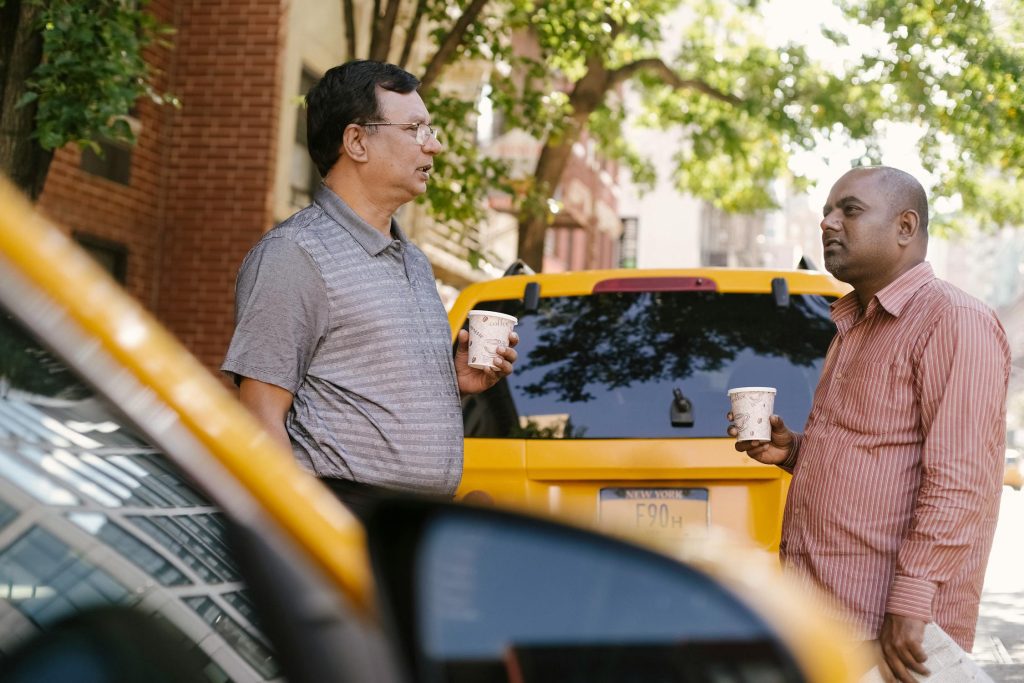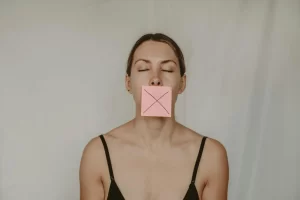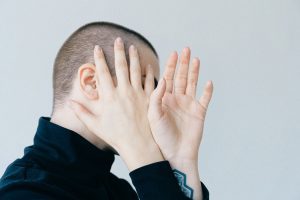 Princeton, are you listening? Everyone has an opinion, but does everyone feel an equal opportunity to share their thoughts and feelings within the community, or even just amongst their friends? While people are allowed to speak out, is everyone truly allowed? And then, how well are we hearing and listening to each other?
Princeton, are you listening? Everyone has an opinion, but does everyone feel an equal opportunity to share their thoughts and feelings within the community, or even just amongst their friends? While people are allowed to speak out, is everyone truly allowed? And then, how well are we hearing and listening to each other?
Congress shall make no law respecting an establishment of religion or prohibiting the free exercise thereof; or abridging the freedom of speech, or of the press; or the right of the people peaceably to assemble, and to petition the Government for a redress of grievances.
These are the words of the First Amendment to the U.S. Constitution. They make it clear that you can’t be jailed or fined for your peaceful opinions, criticisms, or advocacy. You have a constitutional right to speak out. We have seen this amendment strongly put to test on college campuses, in a post October 7th world, where advocates extoll the virtues of free speech for the necessary exchange of ideas. If we take away some of the recent controversies of free speech vs. hate speech, and simply look at the opportunity to share perspectives, does this opportunity extend out into society as a whole? Onto the streets of town? In our daily conversations and at our local schools?
Princeton prides itself on being a welcoming community. It is, after all, hometown to Princeton University and Institute for Advanced Study which bring scores of international residents in each year, and 35% of its population is Black, Asian, Latino and other. It is a town that has decried racism, condemned Antisemitism and Islamophobia, pushed for affordable housing, and is home to multiple nonprofits that ensure the underserved have food on the table. While Princeton welcomes its diversity of people, does it create a welcoming environment for diversity of thoughts as well? Are you able to voice a difference of opinion without being ostracized or considered fringe? Can everyone truly be heard?
“Many Princetonians proudly extol Princeton’s status as a Democratic stronghold,” explains resident Felicia Spitz. “In my role as Chair of the Democratic Municipal Committee, I work to make this a fact because real Democrats are environmental stewards who believe in affordable housing, racial equity, and fair wages. True Democrats not only support affordable housing development they also encourage inclusive zoning. They support fair wages and pay them directly for personal services like housekeeping, landscaping, and childcare. They welcome new residents regardless of immigration status, language spoken at home, or personal financial situation. They support business development and town-wide commerce initiatives because they understand the value of offering quality local jobs. Democrats care about people and work to both ensure and deliver social justice. Democrats are good citizens of the Earth and take steps to leave the next generation a healthy planet. I hope Princeton continues to be an oasis which welcomes everyone and reflects these values.”
Democrat, Republican, Liberal, Conservative, people of various races, religions and nationalities, all call Princeton home. Are all of these people feeling welcomed in the “oasis” Spitz describes above? Within the openness with which Spitz sees Princeton, she says leadership is listening but admits that not everyone feels comfortable speaking their minds. That became evident when asking around town, as others shared that not only are they not feeling heard, but they also feel isolated and unable to speak up.
 “You are not allowed to speak out. It is not a safe place to do that in this town,” shared one Princeton resident, who, like many we spoke to, agreed only to share thoughts anonymously.
“You are not allowed to speak out. It is not a safe place to do that in this town,” shared one Princeton resident, who, like many we spoke to, agreed only to share thoughts anonymously.
Another local, Shenwei Zhao, adds, “I have lived in this area for 17 years (9 years in Montgomery and 7 in Princeton). I have never felt the town this divided as in the past couple of years.”
The divisions fall politically and ideologically as some in each party as well as independents can lean more left or right. While it is not uncommon for a more progressive, Democratic-leaning town like Princeton to have a dominant ideology, the question is, can those that don’t fit into that majority still fit in?
“In my view, Princeton remains an elitist, one-party, hypocritical, intolerant, closed society with present-day values consistent with the traditional southern city it once was,” says Dudley Sipprelle, Chair of the Princeton Republican Committee.
In a town run by Democrats, things tend to lean towards the left. But it is clear viewpoints don’t always fall along party lines. Within those that endorse the Democratic party, there is some contention around town as well. Last month, Princeton Council voted to consolidate its Affordable Housing Board, Human Services Commission and Civil Rights Commission into one entity known as the Community Services Advisory Committee. The all-Democratic Council argued it would create a more integrated approach and allow for better use of municipal resources. Others, often other Democrats, felt it showed an abandonment of support for civil rights and the underserved. When the vote went against their wishes, they didn’t feel heard.
One resident, who prefers to remain anonymous, shared a story of recently attending a celebration to welcome one of the newly elected Board of Education members to the role. “It was this crowd of people who had fought for Chmiel, and when I told people I went to it, you’d have thought I’d hung a Nazi swastika flag on the front of my house.”
Chmiel, referring to past Princeton High School Principal Frank Chmiel, was the center of an uproar of his own last school year, when then Superintendent Carol Kelley sought his removal. Thousands of residents signed petitions, and many turned up in person to his hearing to fight for him to keep his role, yet the overwhelming majority of the Board of Education did not seek to keep him in town. The non-partisan elected school board was getting pushback from people of all affiliations, but many thought a lack of diversity of opinion on the Board led to this decision and sought to change that. The recent November election saw a long-time BOE member ousted, and two newcomers join.
Standing up and speaking out can be hard to do as a group, but even harder to do when you are doing it alone. Earlier this month, two parents stood outside of Princeton Middle School, protesting what they describe as a divisive curriculum being taught there. In turn, their message was deemed to be divisive. They were soon described in another publication by Board of Education President Dafna Kendal as a “small minority.” Their viewpoints are said to not be part of Princeton’s mainstream, but they may not necessarily be so obscure.
 If you were a fly on the wall in any restaurant in Princeton, you could surely hear people, beyond those protestors, sharing concerns about how Diversity, Equity and Inclusion is implemented in schools. If you were an hors d’oeuvres at a local house party, you could hear someone discussing their desire to support Donald Trump for President. And if you had a peek into many private homes, you would hear dinner conversations about a hope for tighter border security. But as people are sharing with Princeton Perspectives, they don’t feel most in Princeton are open to one having such opinions and it has become necessary too often to keep those conversations to oneself.
If you were a fly on the wall in any restaurant in Princeton, you could surely hear people, beyond those protestors, sharing concerns about how Diversity, Equity and Inclusion is implemented in schools. If you were an hors d’oeuvres at a local house party, you could hear someone discussing their desire to support Donald Trump for President. And if you had a peek into many private homes, you would hear dinner conversations about a hope for tighter border security. But as people are sharing with Princeton Perspectives, they don’t feel most in Princeton are open to one having such opinions and it has become necessary too often to keep those conversations to oneself.
“There is a fear of being judged. As one says they are liberal, they don’t allow others to voice their opinions. It’s either their opinion or no opinion,” another frustrated Princeton resident states anonymously, a homeowner who is seeking to move out of town because their family doesn’t feel welcome with their more conservative ideologies.
Zhao, a first-generation immigrant, sees this happening around him but still feels compelled to speak out. “I know many people already feel afraid to speak up due to many societal constraints. That’s very sad. I am lucky in the sense that I don’t have those constraints yet, because who I am and what I do. Many people do need to think about what might happen to them if they speak freely, as this country used to allow them to do.”
Speaking out can mean in conversations with friends, in discussions about school curriculums, and it can also fall within the political arena itself. Residents such as Sipprelle who leads the local Republican committee, feels comfortable speaking out but doesn’t feel heard.
“With only 9% of Princeton voters being registered Republicans and with potentially viable Republican candidates unwilling to run in local elections, I’m not considered to pose a threat to the political status quo,” Sipprelle notes. “On the other hand, I have not been considered for appointment to any municipal board, committee or commission by the last three Democrat Mayors. The municipality advertises for applicants for its BCCs [Boards, Commissions and Committees], but no Republicans need apply, especially not this one.”
It appears this perception is not limited to Republicans. A Democrat, who would not go on record, shared they have applied to no less than 10 BCCs, and has not been considered for one. They state it’s because they are not in sync with those that run the local Democratic party.
Spitz, the leading officer of the Princeton Democratic Municipal Committee, doesn’t see it that way. “I do believe that all voices are equally valued by our governing body and many of our institutions (Princeton Public Library, Princeton University, YWCA, etc.). The current governing body is genuinely committed to listening, regardless of a resident’s political party, socio-economic status, or other demographic characteristic(s).”
Another resident similarly shares that the town leadership works hard to balance all of the input they receive, and from a variety of viewpoints, but adds there is a bit more nuance to it.
“People in Princeton are not quiet – they speak up, sometimes loudly when they feel passionate about an issue, and it impacts their family or community. I think that having debate even when it is loud or awkward is better than silence,” this longtime Princeton resident says, another who asked to go unnamed. “Dialogue on political matters, and other issues, seems to be lacking because sometimes there may be a lack of respect for the other person’s view and tolerance for differences. There is more intensity and more polarization on everything.”
 Many we spoke to asked not to be identified, that may be telling. Altogether, it is something to think about. Perhaps, if in fact people aren’t being heard, this is an opportunity for those that think they’re being open and welcoming, to rethink it and listen better. And, perhaps, if those people that don’t feel heard can see others stating they are open to hearing them, they will speak out more. As the municipality that was once the nation’s capital, there appears to be agreement that Princeton needs to ensure all of its residents feel the fundamental liberties of free speech are not only a legally obligation but welcomed.
Many we spoke to asked not to be identified, that may be telling. Altogether, it is something to think about. Perhaps, if in fact people aren’t being heard, this is an opportunity for those that think they’re being open and welcoming, to rethink it and listen better. And, perhaps, if those people that don’t feel heard can see others stating they are open to hearing them, they will speak out more. As the municipality that was once the nation’s capital, there appears to be agreement that Princeton needs to ensure all of its residents feel the fundamental liberties of free speech are not only a legally obligation but welcomed.

Lisa Jacknow spent years working in national and local news in and around New York City before moving to Princeton. Working as both a TV producer and news reporter, Lisa came to this area to focus on the local news of Mercer County at WZBN-TV. In recent years, she got immersed in the Princeton community by serving leadership roles at local schools in addition to volunteering for other local non-profits. In her free time, Lisa loves to spend time with her family, play tennis, sing and play the piano. A graduate of the S. I. Newhouse School of Public Communications at Syracuse University, Lisa was raised just north of Boston, Massachusetts but has lived in the tri-state area since college. She is excited to be Editor and head writer for Princeton Perspectives!
